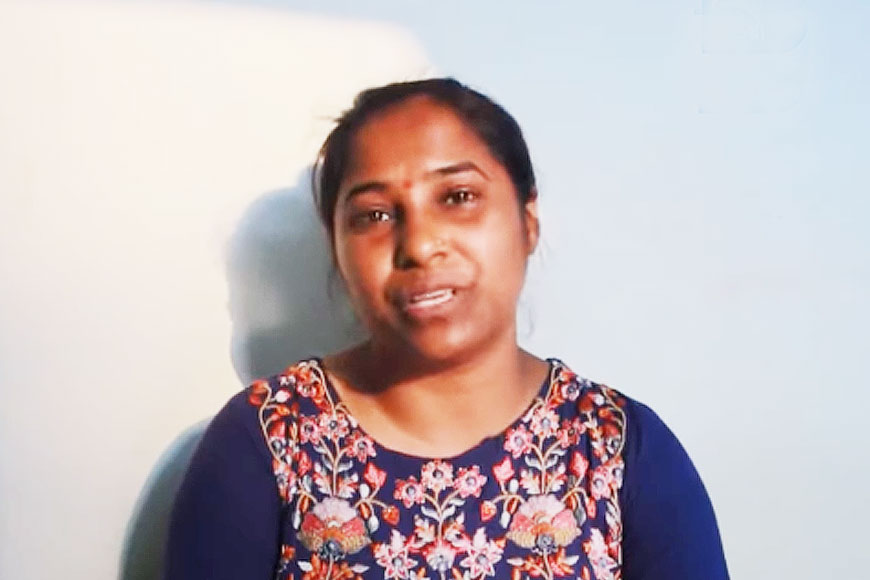Dom Woman of Baruipur Redefines Expectations by working at a Crematorium – GetBengal story

Tumpa Das, the Dom woman of Baruipur, South 24 Parganas
Believed to be the descendant of Dom Raja, Doms are the caretakers of the cremation grounds and the main keepers of the fire that lights the pyres. According to Hindu beliefs, a dead man cannot enter the gates of heaven or attain moksha if their bodies are cremated without the presence of a Dom. Only when the Dom or Dom Raja lights the pyres are rituals considered complete. According to Hindu mythology, Lord Shiva cursed the Doms when a member of their community named Kallu Dom tried to steal an earring from Goddess Parvati. To gain forgiveness, they agreed to become the keepers of the flame. Doms belong to the lowest ranks of the "Dalits," at the bottom of the Hindu caste system. Some members of their community are employed as farmers or weavers, but many earn their livelihood through the "business of death."
Once a corpse is brought to the crematorium, members of the Dom community take over. It is a huge responsibility, and the entire process is quite complicated and laborious. Doms deeply hold the belief that they are carrying out a divine mandate. They see themselves as the sole conferrers of moksha (salvation) upon the departed souls, believing that the Almighty has bestowed upon them the exclusive privilege of sacred fire. The male members of the community shoulder the responsibility, provide the cremation packages, and assist the family members of the deceased during the rituals. However, the scenario is a little different at the Purandarpur crematorium in Baruipur, South 24 Parganas. Here, the person in charge of the crematorium is a woman named Tumpa Das. From registering the names of the dead bodies to working on the furnace, everything is done by her.
There are male Doms working at the crematorium as well, but word about Tumpa’s dedication, her adherence to all crematorium rituals, and her patience has reached far and wide, and most of the time, relatives and friends who accompany the deceased insist on seeking Tumpa’s assistance for the last rites. If anyone gives her some extra token money, she feels humbled.
Before Tumpa joined the profession, her father, Bapi Das, was in charge of the Doms of Purandarpur crematorium. He died several years ago, when she was quite young. The family was in dire straits, with no source of income to sustain them. Tumpa, being the eldest daughter with a younger sister and mother at home, decided to follow in her father’s footsteps and started working at the crematorium as a Dom in 2015. She did this to ensure she could provide her family with four square meals a day. The family lives in a house near Purandarpur Jora Mandir under Kalyanpur Panchayat, Baruipur.
Tumpa’s work at the crematorium is rigorous, and she has to work for 14 hours daily for a meagre salary of Rs 4,000 only. This crematorium has both wood furnaces and electric furnaces. Baruipur West MLA, Biman Banerjee, inaugurated the electric furnace at the crematorium in March 2019. Since 2015, Tumpa has handled all the responsibilities of the wood-burning furnace at the crematorium.
Tumpa gets down to work with gloves in one hand and logs of wood in the other. Her work begins with the arrival of a corpse at the crematorium. First, she files the name and other details of the deceased in the official register, and then she does the rest of the work, from putting the corpse into the furnace, running the machine, bringing the bones, et al. Her shift starts at 6 a.m. and continues until 8 p.m. This crematorium serves a vast neighbourhood, from the Kalyanpur Panchayat area of Baruipur to the adjoining panchayats in the area. Even people from as far away as Bishnupur arrive with dead bodies in the wee hours of the day. So it gets crowded. In the initial years of her joining the crematorium, she would be unnerved by the sheer number of corpses waiting for her. However, over the years, Tumpa has gained experience and has become more confident. She now handles these issues deftly, putting corpses into the furnace one by one all day long.
Tumpa has been getting many marriage proposals; her mother, too, wants her to settle down, but she rejects the proposals because, in most of the cases, the prospective grooms and their families insist that she has to give up her job after marriage, a condition that she is not ready to agree to. She treasures the love and respect she receives from the relatives and friends of the deceased, and added to that, her desire to work has driven everything else out of her mind. There is also a sense of pride associated with her work, which serves as a means for her to validate her presence within a society that often ostracises, distances, and regards the Dom community as untouchable. She holds the position of a hereditary caretaker of the cremation ground, a guardian of the ritual fire that is used to light funeral pyres. The cremations are carried out day and night, and as a member of the Dom caste, Tumpa is proud of her inherited responsibility.
Septuagenarian Yamuna Devi broke the glass ceiling before Tumpa and chose to become one of the main funeral directors at the Harishchandra Ghat in the holy city of Varanasi. She joined after her husband’s death and plans to continue to do things her way until she dies. She staunchly believes the job empowers her, though she is often ridiculed and insulted for doing the job of a Dom as a woman and a widow. However, most people fail to realise that on a cremation ground, one’s gender, caste, or marital status does not matter. She lives with that belief and, like Tumpa, plans to continue serving the dead.










